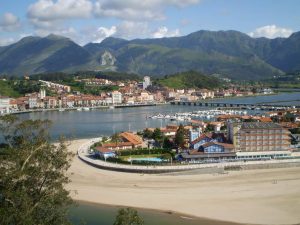Wondering how to deal with emotional exhaustion while walking the inspiring Camino de Santiago? Yes, in this unique journey, exhaustion not only affects your body, but also your emotions.
Facing emotional challenges is an integral part of the experience. This post will guide you with practical advice, giving you tools to equip yourself emotionally. y know what to carry in the backpack of your feelings. On the Camino, every step counts, and managing emotional fatigue is key to fully enjoying this transformative adventure.
From mundiplus we will tell you how to prepare your emotional backpack and strengthen your well-being on this journey in which each emotion becomes a pillar for your personal growth.
Índice de contenidos
Recognizing emotional exhaustion
As you walk the Camino de Santiago, it is important to be alert to the signs of emotional fatigue. Observe How emotions influence your energy and well-being. This recognition will allow you to proactively address emotional exhaustion.
When you choose to embark on this journey, it is also crucial to choose a organizing company of the Camino de Santiago de Compostela. This should offer you resources and support to manage not only physical challenges, but also emotional ones. A company like Mundiplus becomes a valuable ally, offering you key information about the route, accommodation options and taking care of your luggage.
Also, you must connect with other pilgrims, share experiences and discover strategies that have been successful for them. Recognizing emotional exhaustion from the beginning will allow you to address it more effectively, ensuring that your journey is an enriching experience and not just physically rewarding.

emotional equipment
On your journey along the Camino de Santiago, as important as the physical equipment is your emotional preparation. Cultivating patience and compassion with yourself is essential. Recognize that this path may present emotional challenges and that it is okay to feel overwhelmed at times. Emotionally equipping yourself means accepting your emotions and allowing yourself to experience them without judgment.
A good way to not get overwhelmed is to know your limitations. If you think you can’t handle a full pilgrimage, you can always do the French Camino de Santiago trip from Sarria. This is the minimum distance and it will help you to know that it is much less demanding.
And if you consider yourself prepared for the most demanding pilgrimages, such as the French Way to Santiago or more than 30 stages of the northern road to Santiago, these three brief tips will be useful to you:
- Develop a openness and flexibility mentality. Accept that each day can bring new emotions and challenges. By integrating emotional self-care into your daily routine, you will be better prepared to handle difficult situations.
- Practicallya meditation, conscious breathing or just take some time to rest and reflect. These actions can make a difference by strengthening your emotional well-being and providing you with the resilience needed to move forward on your journey.
- Remember, Your emotional equipment is as important as what you carry in your physical backpack.. With patience and self-compassion, you will be ready to face any emotional challenges that arise on the road to Santiago de Compostela.
Self-care practices
Incorporating self-care practices into your daily routine is key to managing emotional fatigue.
Take breaks during your walk to focus on your breathing. This will not only provide mental clarity but will also help manage emotional stress. Besides, make sure you prioritize rest. Restful sleep is essential for your emotional and physical well-being on this challenging journey.
Consider bringing with you a travel notebook. Writing down your thoughts at the end of the day is an effective way to process your emotions and release built-up tension. These practices will not only strengthen your emotional well-being, but will also provide you with the energy necessary to face each new day on the Camino.
Connect with other pilgrims
On your journey to Compostela, regardless of the Jacobean route you have chosen, be it Portuguese Way to Santiago or the shortest and least demanding stages of the Camino de Santiago from Tui, the connection with other pilgrims becomes a balm for emotional exhaustion. Don’t underestimate the power of sharing your experiences. When staying at the hostels, take advantage of the common spaces to interact with those who share this trip with you.
Listening to other pilgrims’ stories not only gives you diverse perspectives, but also creates a bond of solidarity. Share your own experiences It can ease the emotional burden and foster a sense of community. Do not be afraid to open up, because each pilgrim carries with them their own inner journey.

Forming genuine connections on the Camino can transform the experience. Consider joining potluck dinners or participate in group activities. These interactions, far from being simple distractions, become fundamental moments for your emotional well-being. Facing emotional exhaustion together strengthens the Camino community.
daily reflection
At the end of each day, daily reflection becomes an essential practice to manage emotional fatigue. Take quiet time to review your thoughts and emotions of the day. As we have told you, a travel notebook can be your ally, providing a space where you can write your reflections.
Identify the moments that generate joy, overcome challenges or difficult emotions. This exercise allows you to process what you have experienced, releasing accumulated tensions. You will learn to recognize emotional patterns and adjust your approach accordingly.
Don’t be afraid to write down even small victories or gratitudes. These positive details can make a big difference in your overall outlook. Daily reflection not only helps you manage emotional exhaustion, but also contributes to a deeper sense of self-knowledge and appreciation for the journey you are undertaking.









